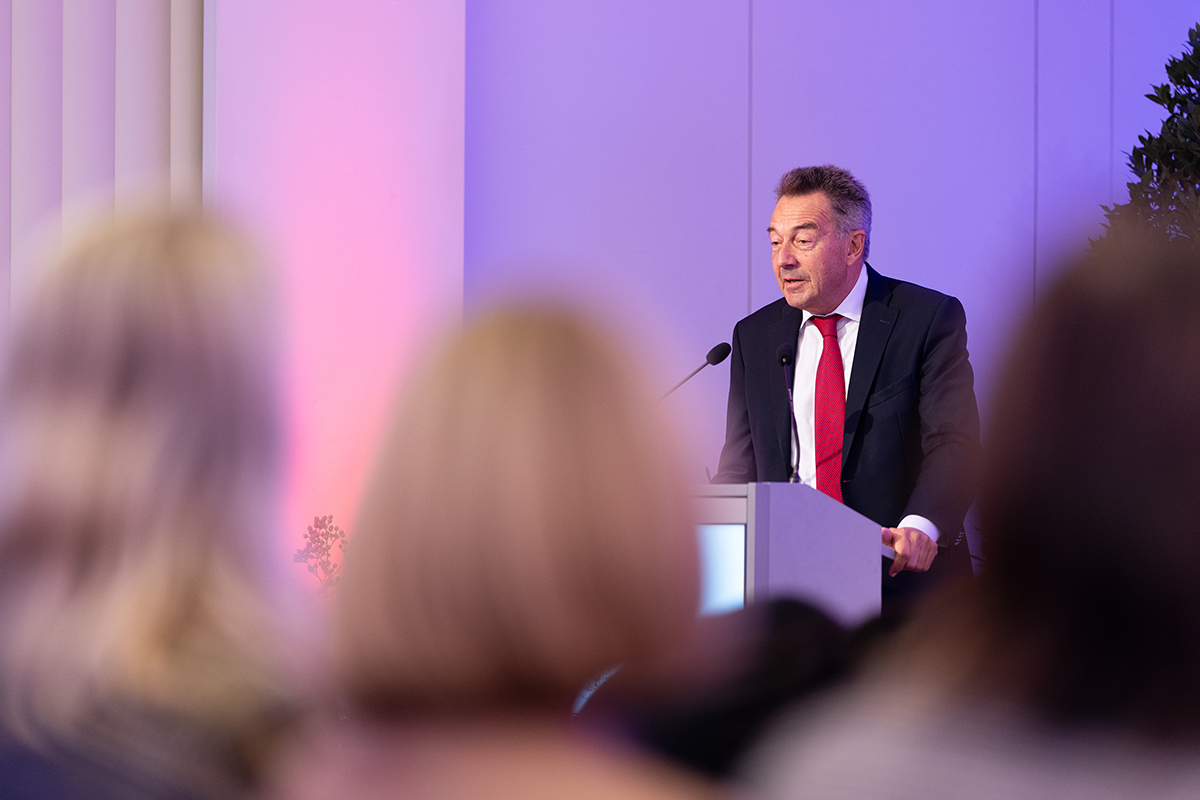Ask a taxi driver: Peter Maurer on definitions, dialogue and the collective fight against corruption

This blog is adapted from a keynote speech at a high-level event in Vaduz, Liechtenstein on 31 October 2023. Organised by the Liechtenstein Government in collaboration with the Basel Institute, the event focused on the fight against international financial crime.
When you travel, it is almost always insightful to ask taxi drivers about the country’s biggest problems. Invariably when I have done this, corruption is named as one of the local population’s main concerns.
That people all over the world care about corruption is no wonder, because they see the effects on their lives every day. Corruption drains resources from the economy and negatively impacts social development and cohesion. People on average and low incomes are the most affected.
Beyond everyday impacts, corruption also jeopardises the achievement of the Sustainable Development Goals. It undermines efforts in the areas of climate, human rights, environmental protection and health. And it is increasingly recognised that corruption plays a big role in fuelling conflict and undermining security.
In contrast to taxi drivers and their fellow citizens, it is striking that political institutions and the economy attach relatively little importance to corruption. Corruption is mentioned just twice in the 2023 Global Risks Report published by the World Economic Forum (WEF), both times in passing. But if you look at the list of 32 global risks that are deemed important in the WEF's survey, you'll quickly see that corruption exacerbates practically every single one. So it should receive much higher priority.
This does not mean that nothing is being done. But the problem of corruption is not receiving the attention, interest, political momentum and resources it deserves.
Fundamental differences
This discrepancy – between the real-world impacts of corruption and the attention paid to it at the highest political and economic levels – also points to a problem: Corruption remains insufficiently defined. And where it is defined by international treaties, there is too much room for interpretation.
In recent decades, the fight against corruption has therefore been broken down into definable criminal offences like bribery or money laundering. This has brought progress, but also problems of political coherence. Because standards are not defined in the same way everywhere, cooperation between legal systems is put to the test.
Not only do these different understandings make cooperation difficult. Newly recognised forms of corruption also risk being forgotten. For example, the term is often reduced to bribery or other monetary forms of corruption involving public and private actors. But that misses out behaviours such as patronage, nepotism, conflicts of interest, influence peddling or the manipulation of legislative processes with a corrupt objective, to name but a few.
At the Basel Institute on Governance, we see the challenges that these discrepancies cause across our work – from the recovery of assets to the corruption risk management frameworks of international corporations to attempts to counter money laundering and terrorist financing.
Hybrid solutions based on a common understanding
In many ways, the challenges in the fight against corruption are similar to those in efforts to reduce war and conflict and to promote human rights and international humanitarian law. Norms and realities diverge: political and professional, legal and practical, real and virtual. And wherever we look, problems are complex and typically arise on several levels, affecting a variety of players. They require different expertise, specialist knowledge and new approaches to solve them. Hybrid problems need hybrid solutions.
Many areas of tension arise from the hybrid nature of corruption, as in other fields. The biggest tension is often between the technical/legal side and domestic political conditions. While legally coherent standards are important, they are not necessarily politically acceptable. This is because states have to consider other interests beyond the objectives of the standards.
But aligning standards solely with the political wind is not a solution either. Then the law becomes arbitrary and leads us to double standards. We see this in major issues such as sovereignty – the inviolability of borders, the protection of the civilian population or the confiscation of assets – where context-specific political stances call into question universal norms that are crucial for legal certainty. One finds the bombing of civilians unacceptable in one place and not worth mentioning in another. One negotiates with terrorists here, but not there. One finds property rights a good thing here, and calls for unilateral confiscations there.
What is important today is that we find our way back, or rather forward, to norms that are universally implemented and understood regardless of – or perhaps precisely because of – the hybrid nature of the problems we are faced with. Or if this is not immediately politically possible, norms should at least be universally applicable. This means we need to uncover the interests behind the normative problems in order to find political compromises that work.
No problem is an island
The English poet John Donne wrote 400 years ago that "No man is an island, entire of itself”. He meant that we are all dependent on each other and that our decisions have impacts beyond our selves.
That holds particularly true when it comes to solving problems. We know that we cannot make decisions on a national level alone. Or if we do, they do not actually solve the problem. But instead of thinking in the interconnected, multi-faceted manner and collective action-driven manner necessary to solve problems, our national and international institutions and decision-makers are locked in siloed thinking and functional differentiation. This inhibits adequate and legitimate solutions. Again, we see this in our work every day.
Another challenge is that to solve problems, we need to combine what is legally meaningful and politically legitimate. Yet the more norms we create, the more vague become the boundaries between what is legal, illicit and illegal. This is because we don’t give adequate consideration to the political consensus when it comes to norm creation.
This reminds me in many ways of my previous work. Corrupt politicians or businessmen are not that different from warlords who violate the Geneva Conventions:
- They interpret a normative vacuum as empowerment, using the excuse that if something is not explicitly prohibited, it is allowed.
- They turn perpetrators into victims, when they attempt to undermine anti-corruption efforts with arguments about property rights and economic freedoms.
- They hide behind logic like: "If the other person is corrupt, I can be corrupt too."
From my previous challenges with the implementation of the Geneva Conventions, and from what I see in the anti-corruption world so far, I tend to believe that there is often no alternative to dialogue and negotiation with the power holders, actors and stakeholders who are sceptical of the further development and implementation of anti-corruption norms or who resist them outright.
This does not mean renouncing normative coercion or that we should give perpetrators a right of veto. Rather, it means that we need to be willing to understand and recognise the realities of power. And that as a consequence, behaviour, institutions and processes need time to adapt to new requirements.
The vital role of non-state actors
A last important point: focusing solely on states and state-driven solutions is no longer appropriate today. Wherever we look, actors other than states play a vital role in politics, standard setting and the practical implementation of standards.
In the fight against corruption in particular, we would be making even less progress without the constant pressure and solutions coming from civil society and the private sector. Social norms, political realities and corruption are a collective action problem, just as we have seen in tough conflict and humanitarian situations. Calling for norms is relatively fruitless without a committed business community and civil society that also want to implement behavioural changes in their own interests.
It is not only dialogue with the powerful that is needed, but also the mobilisation of those willing parties who want to tackle problems effectively and collectively. And because here again, problems are multi-layered, complex and hybrid, there is an even greater need to mediate between norms and realities, individual cases and policies, political and professional perspectives.
Seeking pragmatic solutions should remain our goal.



